December 30, 2025 | 22:25 GMT +7
December 30, 2025 | 22:25 GMT +7
Hotline: 0913.378.918
December 30, 2025 | 22:25 GMT +7
Hotline: 0913.378.918
In the solemn atmosphere of the opening day of the Exhibition on National Achievements marking the 80th National Day (September 2, 1945 - September 2, 2025), the booth of the Northern Food Corporation (Vinafood 1) became a special stop, attracting visitors with both memories and the present.
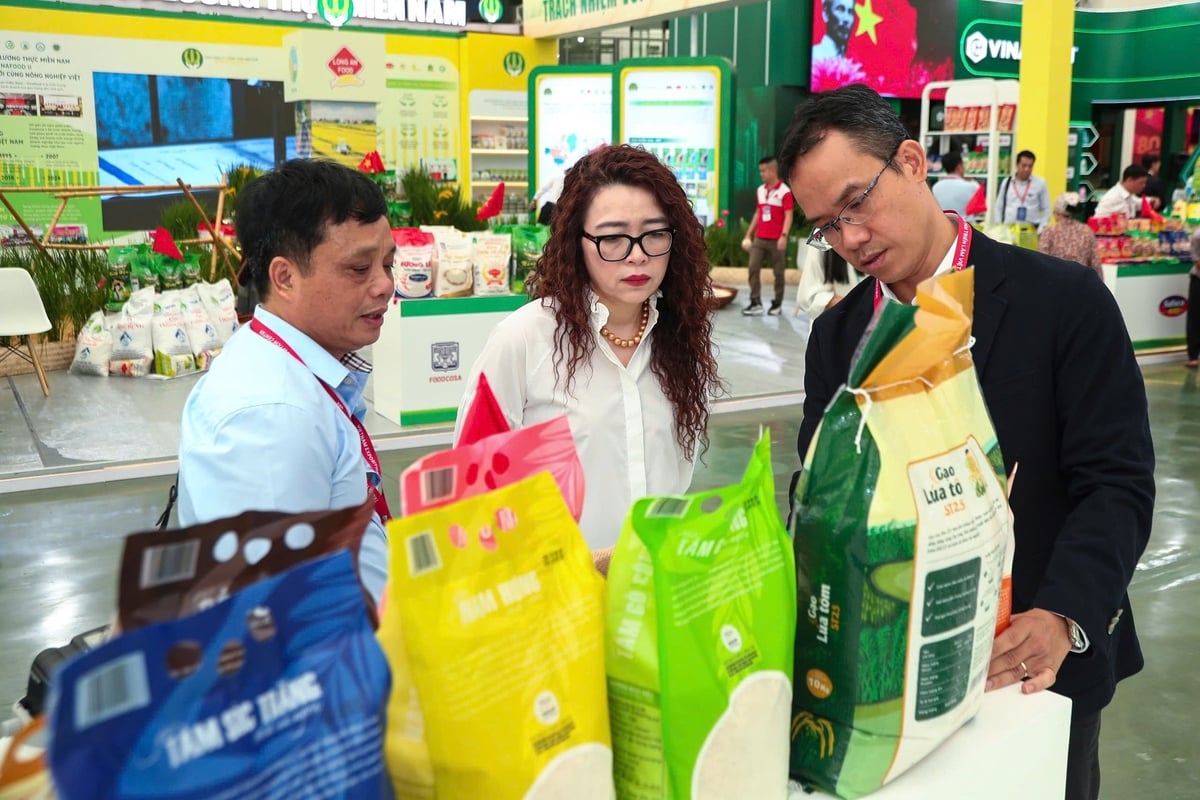
Mrs. Bui Thi Thanh Tam, Chairwoman of the Members' Council of Vinafood 1, at the National Achievements Exhibition marking the 80th anniversary of National Day. Photo: PH.
Looking back over the past decade, Vinafood 1 has affirmed sustainable growth, not only in output but also in the value of rice. During 2011 - 2015, the company reached 4.188 million tons with an export value of USD 1.62 billion; moving into 2016 - 2020, although output dropped to 3.679 million tons, the value remained unchanged, reflecting a shift from “quantity” to “quality.” Especially in the period 2021 - 2025, output is projected to reach 5.22 million tons with an export value of USD 2.71 billion, demonstrating a strong growth strategy in both quantity and quality.
This journey has not just been about numbers; it has also opened doors to markets. From familiar Asia, such as the Philippines, Indonesia, Malaysia, China, and South Korea, Vinafood 1’s Vietnamese rice has reached Africa, the Americas, and Europe, conquering demanding markets like the United Kingdom, Germany, and Switzerland. Vinafood 1 has thus become a key enterprise in national rice exports, contributing to Vietnam’s transformation from a country of “self-sufficiency” to one with a prestigious rice brand on the world food map.
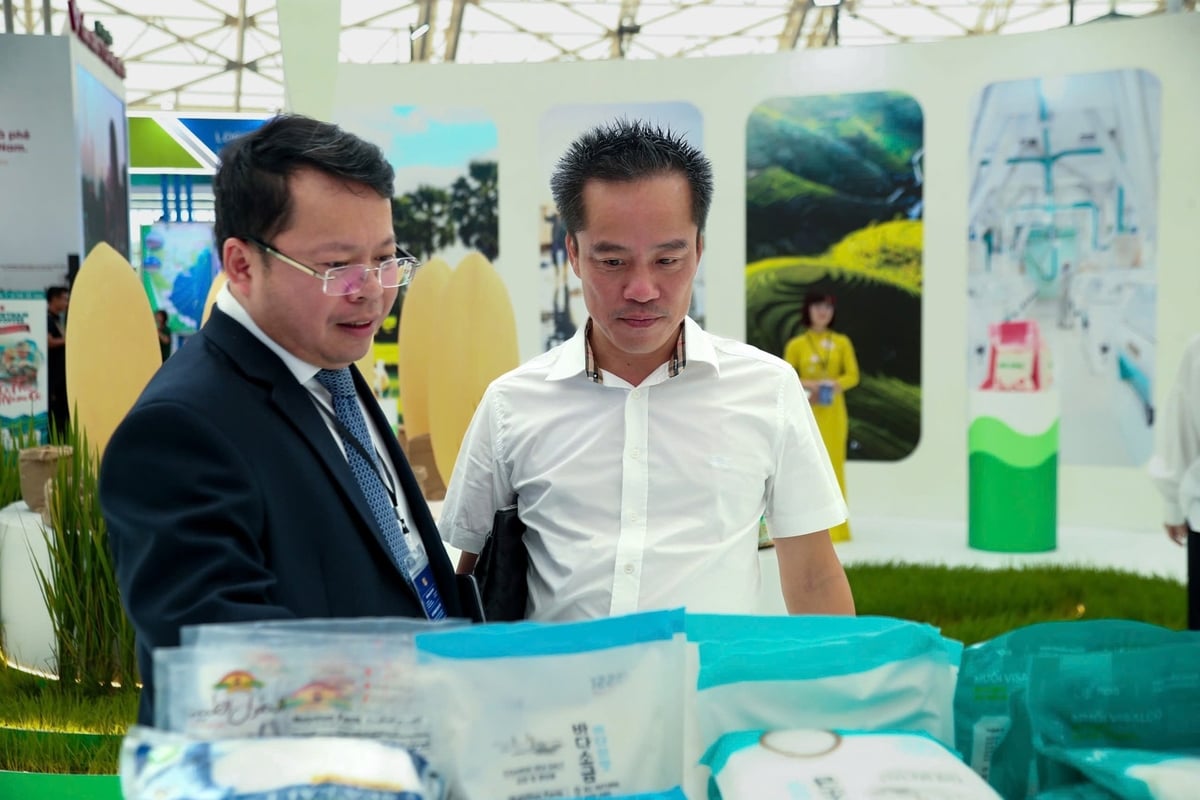
Looking back on its journey over the past decade, Vinafood 1 has affirmed sustainable growth, not only in output but also in the value of rice. Photo: PH.
In 1945, our country had just emerged from colonial rule when it immediately faced countless threats. In his speech on September 2, President Ho Chi Minh declared the birth of the Democratic Republic of Vietnam. Yet he also soon realized three enemies threatening the nation’s survival: hunger, illiteracy, and foreign invaders. It was no coincidence that he placed hunger first. Just months earlier, the 1945 famine had claimed the lives of more than two and a half million people, a painful wound carved into historical memory.
With his deep care for the people, Uncle Ho launched the “Resistance Rice Jar” campaign, personally setting an example by saving a handful of rice from each meal to share with the poor. From that simple yet noble act, millions of families voluntarily contributed rice, paddy, and labor, joining hands to overcome hunger. In those dire circumstances, an organization that ensured food for the people, preserves life, and preserves the strength of the resistance gradually took shape, laying the foundation for the food sector later on.
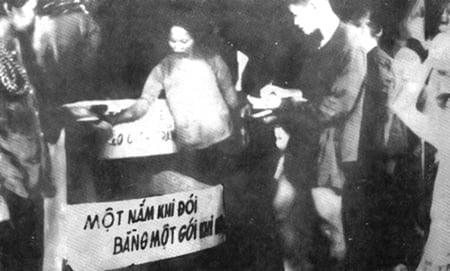
The famine of 1945 claimed the lives of more than two and a half million of people (archival photo).
During 1955 - 1975, the North became the great rear, bearing the brunt of the destructive war while supplying the beloved South. The spirit “All for the front, all for victory” became a command from the heart of every citizen. Slogans like “Not a kilogram of rice short, not a soldier missing,” and “Five tons of rice to help defeat America,” were not just calls but living truths in every field, every drying yard, every storage bunker.
After national reunification in 1975, the entire nation entered a period of extreme hardship. The economy, exhausted after years of war, faced countless challenges. In that context, once again, the food sector shouldered the heavy responsibility of ensuring food for the people. During the subsidy years, with rationing systems, rice coupons, and regulations such as “a minimum of 13, a maximum of 17 kilograms of food per person each month,” many generations still recall the struggle. It was a time when every grain of rice was carefully measured to balance supply and demand, while the country imported hundreds of thousands, even millions of tons of food annually. Difficult as it was, it was during those years that resilience and the spirit of “enduring hardships to preserve independence and freedom” were forged in the people, including those working in the food sector.
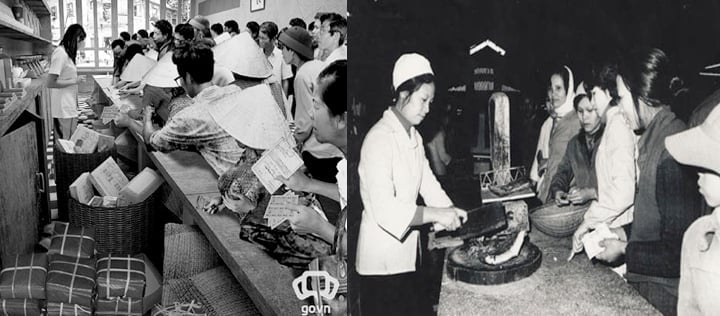
After the country was reunified in 1975, the entire nation entered an extremely difficult period (archival photo).
The Renovation Congress, launched at the 6th National Congress of the Communist Party, opened a new chapter. From a subsidy system, the country made a bold shift to a socialist-oriented market economy. The food sector too faced the question of “to exist or not to exist” in the new system: not only supplying a single type of rice but also meeting the diverse needs of the market, from price to quality.
In that context, in 1995, the Northern Food Corporation (Vinafood 1) was officially established under a decision of the Prime Minister, based on the restructuring of enterprises under the Central Food Corporation I and local enterprises from Thua Thien-Hue northwards. Vinafood 1 was born with the mission not only to do business but also to safeguard national food security.
Today, entering a new stage, Vinafood 1 no longer stops at “food and clothing” but is reaching for higher values: “eating well, dressing well,” “eating clean, eating green.” This is a natural continuation and development, so that each grain of Vietnamese rice not only nourishes the nation but also helps elevate Vietnam’s position on the world food map.
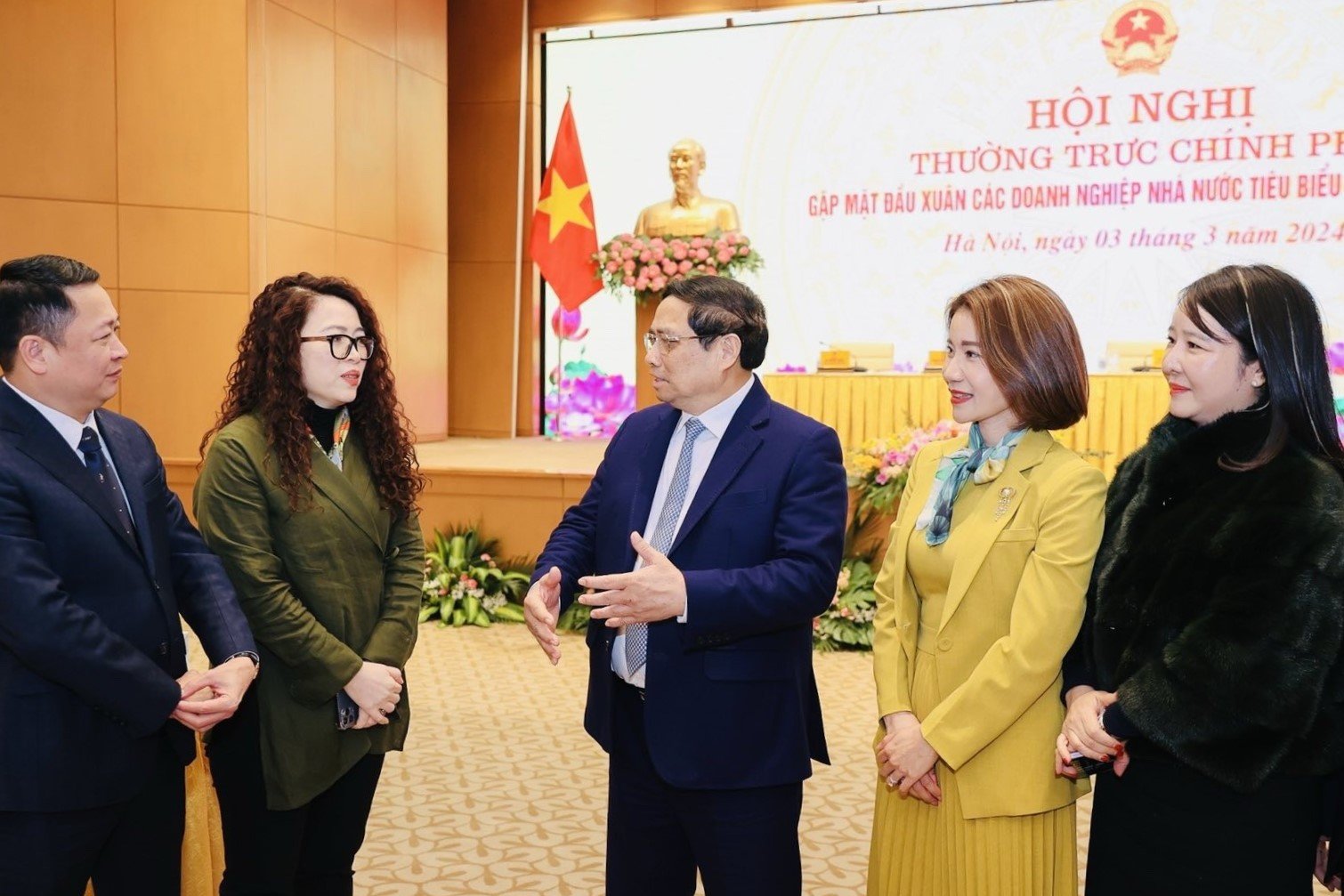
Prime Minister Pham Minh Chinh talks with Mrs. Bui Thi Thanh Tam and representatives of enterprises at the Conference of the Government Standing Committee with outstanding state-owned enterprises nationwide on March 3, 2024. Photo: Vinafood 1.
From the hardships of the past, Vinafood 1 today has risen to become one of the leading enterprises in Vietnam’s food sector. Each year, Vinafood 1 consumes on average between 1.6 million and 2 million tons of rice, of which 1 million to 1.5 million tons are exported, bringing Vietnamese rice to dozens of countries across Asia, Africa, and the Middle East. Not only maintaining traditional markets, the company has also gradually expanded into new markets, enhancing the value and brand of Vietnamese rice in the international arena.
The Exhibition on 80 Years of National Achievements is therefore an occasion for Vinafood 1 to proudly look back on its journey while affirming its determination to enter a new stage, where each grain of rice not only sustains life but also carries the trust and aspirations of a nation rising strongly.
Translated by Huong Giang

(VAN) Located in three former provinces, Nam Dinh, Thai Binh, and Ninh Binh, and now in two provinces, Ninh Binh and Hung Yen, "Red River Delta" is the name of Vietnam's first interprovincial coastal wetland World Biosphere Reserve.
/2025/12/29/1046-1-210728_624.jpg)
(VAN) In 2025, Viet Nam recorded severe and extreme disasters, breaking multiple historical records and causing heavy losses in lives, property, and infrastructure nationwide.

(VAN) Applied technologies, water-saving irrigation is a strategic solution to promote climate-resilient agriculture and strengthen water security in the uplands.
/2025/12/29/3936-3-163422_251.jpg)
(VAN) Can Gio mangrove forest in particular and the entire Can Gio Mangrove Biosphere Reserve in general hold great potential for carbon credits.

(VAN) Chu Pah Rubber has announced its products that comply with the EU Deforestation Regulation (EUDR), affirming its commitment to sustainable production and product origin transparency.

(VAN) Deputy Director Nguyen Hoai Nam stated that a digital data platform will be developed with agricultural sector databases, utilizing AI to help farmers make informed decisions on 'watering correctly, sufficiently, and efficiently.’
/2025/12/29/4841-2-134224_777.jpg)
(VAN) From only about 10 individuals in 2009, the wild elephant population in Dong Nai has recovered to nearly 30 animals after more than 10 years.